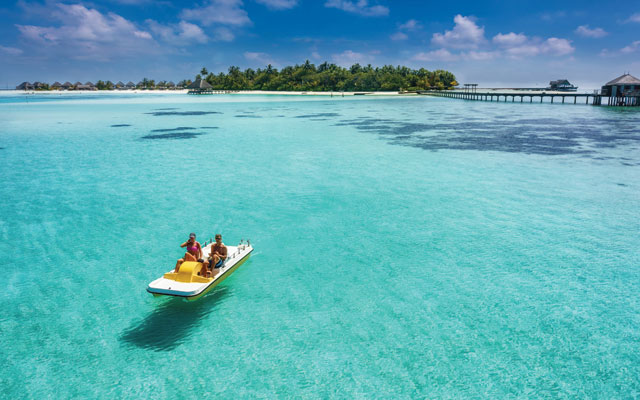Traditional luxury markets are not weaning for the Maldives as the destination opens up to more visitor and accommodation segments
Arrivals from Germany to the Maldives look set to keep its growth momentum, as the market’s traditional preferences hold steady while more affordable accommodation options open the destination up to new segments.
Overall, the German-speaking markets of Germany, Austria and Switzerland have posted slow but positive growth to the Maldives every year. While its growth is modest relative to other source markets, Germany represents one of the most resilient feeders for the Maldives.

Germany is the Maldives’ second largest source market after China. Arrivals from Germany grew by 3.5 per cent year-on-year to reach 106,660 in the January-November 2018 period.
It seems demand could be further stimulated as the Maldives welcomes more big hotel chains and mid-market options.
“This makes a holiday in the Maldives affordable, especially for young couples, (but also for) friends or young families. The winners are the three- and four-star hotels, while five- and six-star ones are having a hard time,” according to Stéphanie Appenzeller, senior sales manager, Europe at the The Small Maldives Island, which has two properties in the Maldives.
Even as more affordable options open up, some maintain that five-star accommodation remain popular among Germans.
Thomas Meier, senior vice president-operations Asia for Minor Hotels, said: “Our five hotels have each seen an increase in guests from these markets during 2018, especially Anantara Kihavah Maldives Villa with an increase of 22 per cent versus 2017, and Anantara Veli Maldives Resort of 55 per cent year-on-year.”
While new resort categories are appealing to Germans, Andrew Ashmore, CCO at Coco Collection Hotels & Resorts/Sunland Hotels, said the German market remains “very traditional, brochurised and seek the peaceful style”.
At Coco’s Maldives resorts, which range from affordable to five-star, German guests have been steadily coming in, and stay for 10 to 14 nights, the longest among its feeder markets, Ashmore told TTG Asia.
Tracy Neureuther, director, Mosaic Tourism Consulting, said: “For Coco Collection, which we represent, the German-speaking market remains a very strong feeder with all key tour operators (recording) increasing figures.”
She added: “In general, positives speaking for the increase are airlift into the destination – with a good choice of direct connections from key cities, as well as the excellent coverage via Emirates.”
Meanwhile, Minor’s Meier pointed to an emerging preference for half-board accommodation among the German market.
“Luxury clients do not want full board or all-inclusive. Half board ensures they retain the freedom to choose during their holiday (while still) helping with budget planning at the time of booking.”
This contrasts with the observations of Howard Brohier, general manager of Diethelm Travel Maldives, who noted a growing popularity of resorts offering all-inclusive meal plans, complete with dine-around options and mini-bar inclusions.
Said Brohier: “In the past, all-inclusive meal packages lacked certain inclusions and were not offered by many five-star properties. However, as resorts add more value, we see the popularity of such resorts growing immensely.”
Suresh Dissanayake, assistant vice president – sales & marketing, Heritance Aarah & Adaaran Resorts, said: “(There is reason to be optimistic in 2019) with tourism bodies in the Maldives having planned a series of activities, starting with participation at ITB Berlin, to create more visibility in German-speaking markets.”




















